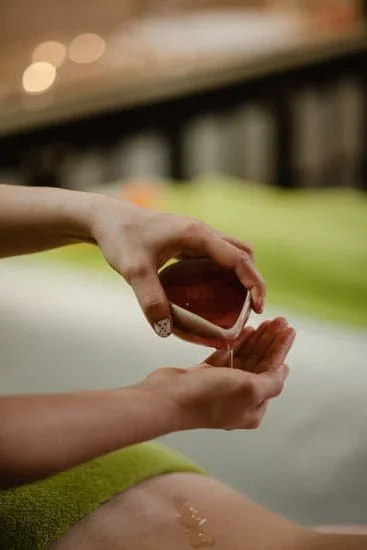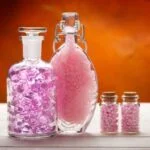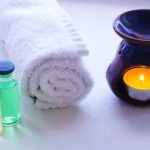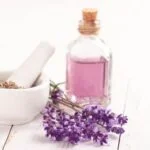Aromatherapy has long been recognized for its ability to promote relaxation and reduce stress, with the use of essential oils dating back centuries. The practice involves utilizing the natural scents of various plant extracts to create a calming and soothing effect on the mind and body.
In this article, we will delve into the world of aromatherapy, specifically focusing on the creation of a de-stress aromatherapy blend. This blend is designed to harness the power of essential oils in combating stress and promoting a sense of calm and peace.
The role of aromatherapy in stress management is profound, as different scents have been found to have varying effects on mood and overall well-being. By understanding the properties of different essential oils, individuals can tailor their aromatherapy blends to address specific sources of stress or tension in their lives. In this section, we will explore how aromatherapy can be used as an effective tool for managing stress and enhancing relaxation.
One of the key elements in utilizing aromatherapy for de-stressing is selecting the right essential oils known for their calming properties. Certain scents such as lavender, chamomile, and bergamot are renowned for their ability to promote relaxation and alleviate anxiety.
We will highlight these top essential oils and delve into their individual benefits when it comes to creating personalized de-stress blends at home. Stay tuned as we guide you through the process of crafting your own customized de-stress aromatherapy blend to help you find peace amidst life’s daily challenges.
Understanding the Role of Aromatherapy in Stress Management
Aromatherapy has been used for centuries as a natural way to promote relaxation, reduce stress, and improve overall well-being. The power of essential oils in aromatherapy lies in their ability to affect mood and emotions through the olfactory system. When inhaled, the compounds in essential oils can have a direct impact on the brain’s limbic system, which is responsible for regulating emotions, behavior, and memory.
The Role of Scent in Aromatherapy
Different scents have different effects on the body and mind. For example, lavender essential oil is widely known for its calming and sedative properties, making it a popular choice for promoting relaxation and reducing anxiety. On the other hand, citrus scents such as lemon or orange essential oils are uplifting and energizing, helping to combat feelings of fatigue and improve mood.
Impact on Stress Reduction
The use of aromatherapy for stress management is based on the idea that when certain essential oils are inhaled, they can help calm the mind, relax the body, and alleviate feelings of tension or anxiety. Research has shown that specific aromas can activate the release of neurotransmitters like serotonin and dopamine, which are known to promote feelings of happiness and relaxation.
Incorporating Aromatherapy Into Stress Relief Practices
Whether through inhalation, topical application, or diffusion, aromatherapy offers a versatile way to integrate stress-relief practices into daily routines. By creating personalized de-stress aromatherapy blends using a combination of essential oils such as chamomile, bergamot, or ylang-ylang, individuals can tailor their experience to their specific needs and preferences. Using these blends in baths, massage oils, or room sprays can provide a multi-sensory approach to stress reduction.
The Best Essential Oils for De-Stressing
The use of essential oils for de-stressing and relaxation has been a popular practice for centuries, with numerous cultures embracing the power of aromatherapy. Certain essential oils have gained recognition for their calming and soothing properties, making them ideal for incorporating into de-stress aromatherapy blends.
Lavender oil is one of the most well-known essential oils for relaxation and stress relief. Its sweet, floral scent has been shown to promote relaxation and improve sleep quality. Studies have also indicated that inhaling lavender oil may help reduce anxiety and emotional stress.
Another popular choice for de-stressing is chamomile oil, which is known for its gentle, calming scent. Chamomile oil has been used for centuries to promote relaxation and alleviate symptoms of anxiety. It is often incorporated into aromatherapy blends to create a sense of tranquility and peace.
In addition to lavender and chamomile, citrus essential oils such as bergamot and orange are also highly regarded for their mood-boosting properties. These uplifting scents can help alleviate feelings of stress and promote a positive mindset. Whether used individually or combined in a de-stress aromatherapy blend, these essential oils offer natural solutions for managing stress and promoting overall well-being.
| Essential Oil | Main Benefit |
|---|---|
| Lavender | Promotes relaxation, reduces anxiety |
| Chamomile | Calms the mind, alleviates anxiety |
| Bergamot/Orange | Uplifting, mood-boosting properties |
DIY De-Stress Aromatherapy Blends
Choosing Your Essential Oils
When creating your DIY de-stress aromatherapy blend, it’s important to select the right essential oils for their calming and soothing properties. Some popular choices for relaxation and stress relief include lavender, chamomile, bergamot, and frankincense.
Lavender is known for its ability to promote relaxation and reduce anxiety, while chamomile is often used to soothe the mind and body. Bergamot has a citrusy scent that can uplift the mood and alleviate stress, while frankincense is revered for its grounding and calming effects.
Creating Your Blend
To create your personalized de-stress aromatherapy blend, you’ll need to mix the selected essential oils with a carrier oil such as sweet almond oil or jojoba oil. A common dilution ratio is around 2-3 drops of essential oil per teaspoon of carrier oil. You can adjust the ratio based on your preference for scent strength and the intended use of your blend (e.g. massage oil, room spray, or bath soak).
Storing and Using Your Blend
Once you’ve created your de-stress aromatherapy blend, store it in a dark glass bottle away from direct sunlight to preserve its potency. To use your blend, apply a few drops to pulse points (such as wrists or temples), use it in a diffuser, add it to bathwater, or mix it with unscented lotion or body oil for a calming massage.
Experiment with different application methods to find what works best for you in terms of relaxation and stress relief.
How to Use Aromatherapy for Stress Relief
Aromatherapy has been used for centuries as a natural way to promote relaxation, reduce stress, and improve overall well-being. Incorporating aromatherapy into your daily routine can be a simple and effective way to de-stress and unwind. Whether you prefer using essential oils in a diffuser, applying them directly to the skin, or incorporating them into your self-care rituals, there are several tips and techniques to consider when using aromatherapy for stress relief.
One of the most common ways to use aromatherapy for stress relief is through the use of a diffuser. By adding a few drops of your favorite de-stress aromatherapy blend to a diffuser filled with water, you can fill your space with the calming scent of essential oils. This method allows you to enjoy the benefits of aromatherapy throughout the day, whether you’re working from home, practicing yoga, or simply relaxing in the evening.
In addition to using a diffuser, you can also apply diluted essential oils directly to the skin for targeted stress relief. For example, lavender oil is known for its soothing properties and can be applied topically to help promote relaxation and reduce tension.
When using essential oils on the skin, it’s important to dilute them with a carrier oil such as coconut oil or almond oil to prevent any skin irritation. Another option is to add a few drops of essential oil to a warm bath for a luxurious and relaxing experience.
| Tips | Techniques |
|---|---|
| Use a diffuser | Apply diluted essential oils topically |
| Add essential oils to bath | Incorporate into self-care routine |
The Science Behind Aromatherapy
Aromatherapy has been used for centuries as a natural way to promote relaxation, reduce stress, and enhance overall well-being. The use of essential oils from plants can have a powerful effect on both the mind and body, making it an effective tool for stress management. Research has shown that aromatherapy can help alleviate stress-related symptoms, such as anxiety and insomnia, and improve mood.
Studies have demonstrated the potential of certain essential oils to induce relaxation and reduce stress levels. For example, lavender oil has been a popular choice for its calming effects, with research showing that inhaling lavender essential oil can decrease heart rate and blood pressure, leading to a more relaxed state. Similarly, bergamot essential oil has been found to have anxiety-reducing properties, while rose oil has been linked to decreased levels of cortisol, the stress hormone.
The Science Behind Aromatherapy
- Research on the physiological impact of essential oils
- Evidence supporting the effectiveness of aromatherapy in reducing stress
- Impact of different scents on brain activity and mood
In addition to the physiological effects of aromatherapy, there is also growing interest in understanding the psychological mechanisms behind its stress-relieving benefits. Studies have highlighted the role of olfaction-the sense of smell-in influencing emotions and behavior. When specific scent molecules are inhaled, they can trigger neurological pathways that affect mood regulation and emotional responses.
Furthermore, with advances in technology and neuroimaging techniques, researchers have been able to explore the neurological impact of different aromas on the brain. Functional magnetic resonance imaging (fMRI) studies have indicated that certain scents can modulate activity in brain regions associated with emotional processing and stress response. This scientific understanding provides valuable insights into how aromatherapy can be used as a non-pharmacological approach to managing stress.
The Psychophysiology of Aromatherapy
- Influence of scent molecules on emotional regulation
- Neurological impact of aromas on brain activity
- Psychological mechanisms underlying the stress-relieving benefits of aromatherapy
Aromatherapy for Different Types of Stress
Aromatherapy has long been recognized for its ability to promote relaxation and reduce stress. When it comes to targeting specific stressors, such as work-related stress, anxiety, or insomnia, different essential oils can be used to create tailored aromatherapy blends. By understanding the unique properties of each oil, you can effectively address the specific challenges you may be facing.
The following essential oils are particularly beneficial for targeting different types of stress:
- Lavender: Known for its calming and soothing properties, lavender oil is ideal for reducing anxiety and promoting relaxation.
- Bergamot: This citrusy oil is often used to alleviate feelings of stress and uplift the mood, making it a great option for managing work-related stress.
- Chamomile: With its gentle yet powerful calming effects, chamomile oil is perfect for addressing insomnia and promoting a restful night’s sleep.
Creating your own personalized de-stress aromatherapy blend can be a simple and enjoyable process. To create a custom blend for specific stressors, you can follow these steps:
- Select two or three essential oils that target the type of stress you want to address (e.g. lavender and bergamot for work-related stress).
- Combine the chosen essential oils with a carrier oil, such as sweet almond or jojoba oil, in a dark glass bottle.
- Experiment with different proportions of each essential oil until you find a blend that appeals to your senses and provides the desired calming effects.
Once your personalized de-stress aromatherapy blend is ready, there are various ways to incorporate it into your daily routine. Whether through diffusion, inhalation, or topical application, using your custom blend consistently can help alleviate specific sources of stress in your life. With careful selection and thoughtful experimentation, aromatherapy can be a powerful tool in targeting different types of stress and promoting overall well-being.
Incorporating Aromatherapy Into Self-Care
In conclusion, incorporating aromatherapy into your self-care routine can have numerous benefits for both your physical and mental well-being. By using de-stress aromatherapy blends, you can create a soothing and calming environment that promotes relaxation and alleviates stress. The power of essential oils in aromatherapy has been shown to have a positive impact on mood and emotions, making it an effective tool for managing stress in today’s fast-paced world.
Whether you are dealing with work-related stress, anxiety, or insomnia, there are specific essential oils that can be tailored to address your individual needs. By understanding the different scents and their effects on the mind and body, you can create personalized de-stress aromatherapy blends that cater to your unique stressors. This DIY approach not only allows for customization but also empowers individuals to take control of their own well-being.
Furthermore, the history and cultural significance of aromatherapy highlight its longstanding use across different traditions as a method of promoting relaxation and healing. The scientific evidence supporting the effectiveness of aromatherapy in reducing stress further solidifies its place as a valuable tool in self-care practices. By incorporating de-stress aromatherapy blends into your daily routine, you can experience the holistic benefits of this ancient practice and find relief from the stresses of modern life.
Frequently Asked Questions
What Essential Oil Blend Is Good for Stress?
Lavender essential oil is well-known for its calming and stress-relieving properties. It helps to promote relaxation and reduce anxiety, making it a popular choice for anyone looking to alleviate stress.
What Oils Are in Stress Away Blend?
The Stress Away blend contains a unique combination of lime, vanilla, copaiba, cedarwood, and ocotea essential oils. This blend is specifically designed to help relieve everyday stress and tension.
Does Aromatherapy Stress Relief Really Work?
Aromatherapy for stress relief has been shown to be effective for many people. The use of certain essential oils can positively impact mood, reduce anxiety, and promote relaxation. While results may vary from person to person, many individuals find aromatherapy to be a helpful tool in managing stress and promoting overall well-being.

Are you looking for a natural way to improve your health and wellbeing?
If so, aromatherapy may be the answer for you.





